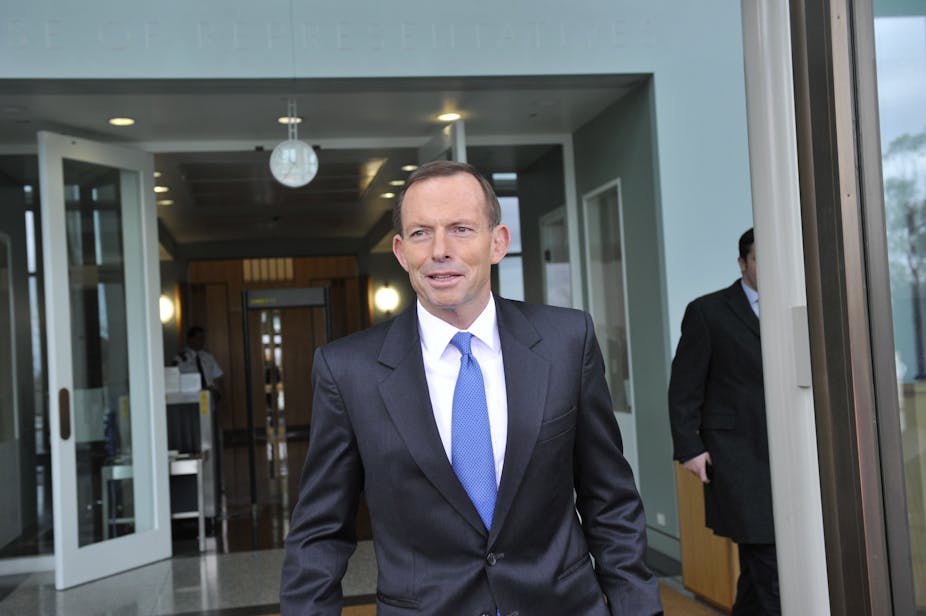The government has been forced to drop its controversial bill to fund the administration of political parties, after Tony Abbott went back on the Coalition’s deal to back the legislation.
After an immense backlash within his own ranks inside and outside parliament and strong negative feedback from voters, Abbott said today: “The people have spoken, and the electoral funding bill is dead.”
Earlier, the Attorney General Mark Dreyfus released a letter written by Abbott last week saying he was satisfied with the agreement reached and indicating “the Coalition’s intention to support the legislation and to deal with it, as requested, before the end of the sittings”.
Abbott refused at a press conference to say whether he had been “rolled” by the Coalition leadership group this morning, though he said he did not accept that “characterisation”.
The legislation provided for spending of $58 million, including $41 million for parties’ and elected independents’ administrative costs and $17 million for the Australian Electoral Commission.
The opposition indicated to the government last night that it was in a difficult position with the bill. They warned they would not support the bill if it were introduced today. The leadership group discussed the situation again this morning.
At a meeting of the Nationals yesterday, great concern was expressed about the bill.
Among the Nationals, there were fears the measure would harm the campaign of high profile National senator Barnaby Joyce in New England, where he is fighting independent Tony Windsor, a strong critic of the bill.
The Queensland Liberal National Party organisation and Queensland backbenchers feared that the Clive Palmer party could exploit the issue, by tapping into public cynicism about both the government and opposition.
Abbott said it had been obvious in a phone hookup of the Liberal federal executive there was “little, if any, support for this and a great deal of instinctive opposition”.
After the opposition announcement, the government and Windsor quickly turned the issue to Abbott’s credibility. Leader of the House, Anthony Albanese said it was “very hard to have discussions with someone who, even when it’s in writing, walks away from the agreement”.
Albanese recalled that Abbott had once said people should rely on his carefully scripted remarks rather than his verbal comments. “Now we know you can have it in writing and it doesn’t seem to matter much either,” Albanese said.
Windsor said that while he welcomed dropping the legislation the affair again raised issues about Abbott’s word.
In his letter, Abbott said he had been briefed by the shadow special minister of state Bronwyn Bishop about the agreement reached between the former special minister of state Gary Gray, Liberal federal director Brian Loughnane and Labor national secretary George Wright on disclosure and funding matters. Loughnane is the husband of Abbott’s chief of staff Peta Credlin.
Mr Abbott said: “The important thing is that we have listened to the Australian people.” He said there was an argument for providing the funding, but it had been “trumped by the circumstances”.
There had been widespread public reaction and “in the end democratic political leaders have got to be conscious of the mood of the public”, Abbott said.
“Plainly this is not the time, at a time when we are asking people to tighten their belts, to be giving extra money to political parties.”

